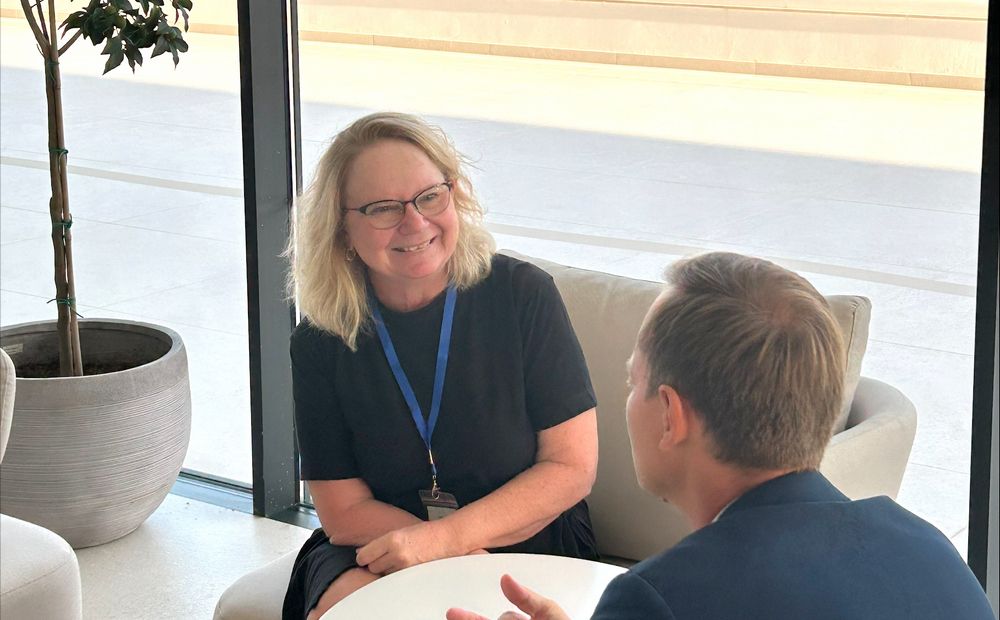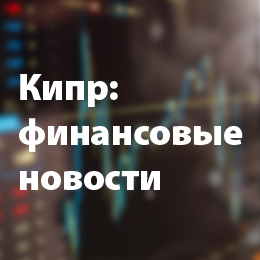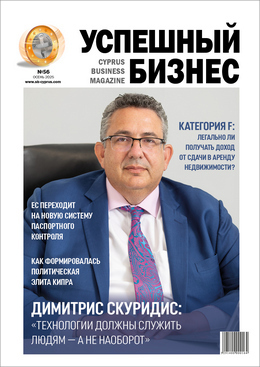The Clinical & Translational Omics Symposium 2023 was held in Protaras on November 4-5th, 2023. It brought together researchers from the fields of Omics, including proteomics, metabolomics, and lipidomics, along with experts in bioinformatics and the application of artificial intelligence. We spoke with one of the leading international experts in the area of clinical proteomics, Dr. Jennifer Van Eyk, Director of Basic Science Research at the Barbra Streisand Women’s Heart Center, USA.
Could you explain, in simple terms, how advancements in clinical proteomics impact medical treatments and patient care?
Lots of people don’t know what proteomics is, but almost everyone does know what their DNA is, and what their genome is.
We look at it like this: the genome, or your DNA, can be thought of almost like the city map. If you had a map showing only the streets, that’s your genome. But, if you add to the map walking people in the streets, and you also have cars coming and going, then this is the proteomics. If you have an accident on one of your highways, then you have first responders come. That’s how your cells respond when you have a disease. So the proteome can be thought of as the living, breathing things, represented on your map as the people in cars, moving around. That’s really how proteins work – they are what brings the ‘city’ alive.
What we’re trying to do in our field is to measure all of that. Of course, we are not able to see everything. Let’s say we’re trying to sit on the rings of Saturn and look down into this room where you and I are sitting, and figure out that I’m wearing glasses and you are not. It gets more complicated if I look today and you’re wearing a blue suit, but tomorrow, you might be wearing a brown one, and we have to be able to track that. That’s why it’s so hard.
If to talk briefly about how proteomics impact medical treatments – well, it’s working on both sides of the problem. It helps to determine if you’re sick, and it absolutely tells you how you’re going to respond to a drug. It will also tell you what your chances of survival are.
For example, you can take a little finger prick of blood and mail it to us. Then, we can tell over time how well you’re progressing. You don’t have to go see your doctor. So it’s not necessary to call human-like diagnostics each time. For you as a consumer, it gives an ability to track your health and your wellness.
How might these advancements influence or benefit businesses in the healthcare sector or related industries?
There are lots of opportunities – from being able to help direct consumers track their health, to reducing the cost within a hospital or the medical system, let’s say, in Cyprus. You can start to see telehealth being an important, still highly regulated, but reducing the cost. It can mean that when you’re doing drug trials, instead of having everyone come in physically, you can do it from home.
It also means that in normal drug trials, often the whole population isn’t represented, instead only a certain demographic is. So now all of a sudden you can reduce that barrier, and have results from even populations that are rare, of different backgrounds, different people who have diabetes for example. They can now be included.
Which modern research or technologies, which 10-15 years ago might have sounded as though they were part of a sci-fi movie, still appear extraordinary even to you, the experienced scientist?
Even what I did in my laboratory two years ago, we do completely differently now. It’s unbelievable how fast it’s moving, and how fast we can do things. For example, we have this great study, it is called Molecular Twin. We know what your DNA looks like. We know the RNA being expressed in a tumor, versus a non-tumor. We know what the proteins look like in the tumor, and the non-tumor. And we also know what it looks like in the blood.
Let’s pretend there is a patient with a cancer. We would be watching what was happening using their blood and other things like that, and then we would follow him over time. Let’s imagine that his molecular phenotype looks very much like this other person who he doesn’t know. That person did okay on this drug and the both did not do well on a different drug. So that’s why it’s called molecularly twin.
We started studies in pancreatic cancer as a trial. Pancreatic cancer normally gets diagnosed very late and there’s not a lot of options for surgery. And we found that we could predict their survival rate based on a profile from their blood. At our hospital, in my guess, within two years, we’ll start using this clinically. And behind it, because it was successful, we’re now doing the same for breast cancer, bladder cancer, in order to get that, and start to build that information.
I always say that the beautiful thing about diagnostics is that every time a physician has to make a decision, or every time a patient himself has to make a decision, we should be able to give quantitative data. That is saying, at least a probability, that it looks like this is what’s going to happen. This is your molecular twin, this is what happened before. Something that allows you not to just guess, which is horrible, but to give you a practical decision, and that’s precision medicine. This is what inspires me the most – it’s challenging and it could change the medicine in terms of helping people.
Jennifer Van Eyk, PhD, is an international leader in the area of clinical proteomics. Her lab has focused on developing technical pipelines for de novo discovery and larger-scale quantitative mass spectrometry methods. This includes multiple reaction monitoring (MRM, also known as SRM) and, most recently, data-independent acquisition. She aims to facilitate the transition of targeted and robust discovery methods into large-scale assessments of healthy populations and clinical-grade assays, focusing on brain and cardiovascular diseases.







